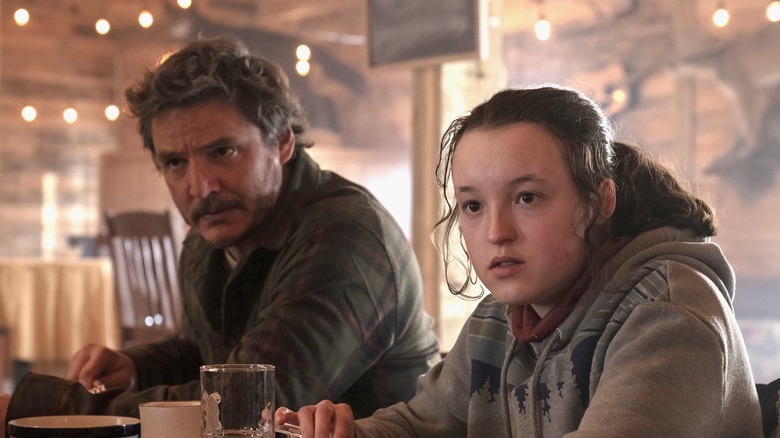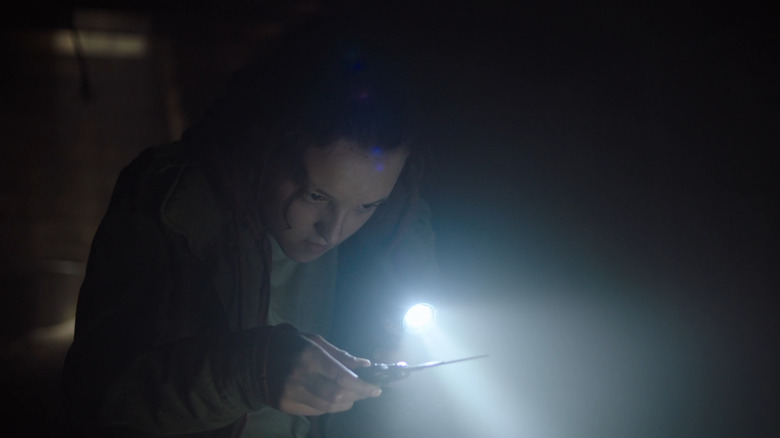The Last Of Us: Bella Ramsey Says This Was Ellie's First Moment Of Evil Violence
HBO's "The Last of Us" revolutionized the zombie genre by asking, "What if there were way fewer zombies than you expected?" While the infected do dot the blighted landscape, the show is more concerned with humans than with the mushroom-brained menaces. Ellie (Bella Ramsey) is an impressionable young person who finds herself a ward to Joel (Pedro Pascal), a man with more skeletons in his closet than a Spirit Halloween warehouse on November 1.
In this post-apocalyptic bildungsroman, Ellie's sense of self is bifurcated between two extremes as she experiences the world with all its horrors for the first time. In Joel, she sees both a compassionate father figure and a ruthless killer, and increasingly begins to conflate the two. And, as Bella Ramsey explained to Vanity Fair, there's a moment in which we can see her inclination toward violence.
In Season 1, Episode 3, titled "Long, Long Time," Ellie comes across the nearly dead body of an infected who was crushed by falling rubble. Seemingly both disgusted and enthralled, she approaches him with her knife and stabs him in the skull, killing him.
According to Ramsey, that moment is when their character embraces a darker side of herself. "That scene, she's thinking of, like, Riley and Tess, and being like, 'You killed Riley and Tess,' essentially. Like, the infected guy. It's like, 'Even though it wasn't you, it was you.' It's like, 'Your people. You killed them.' It's like her first moment of real violence and, like, revenge."
Ellie is contemplating revenge while slicing open an infected, Ramsey says
When Ellie kills the trapped infected, she could have gone about it as a mercy kill. Instead, there's a glint of malice in Ramsey's performance, an eagerness in the moment before she plunges the blade into the Infected's skull. In her Vanity Fair appearance, Ramsey concluded their thoughts on the scene by noting, "Yeah, she's kind of evil in that moment. I'm kind of into it."
Ellie's borderline fetishistic attachment to violence grows over the course of "The Last of Us" Season 1. By the end of Episode 3, she's sneaking a gun into her backpack, which she uses later to kill a man who has Joel pinned down. By the penultimate episode, she is forced to use extreme violence to escape the clutches of a cannibalistic Christian cult. Is she adapting to the realities of a dog-eat-dog world in which letting your guard down means certain death, or is she merely replicating Joel's own dark mistakes? That's a question the series will hopefully prod with even more depth in "The Last of Us" Season 2.

